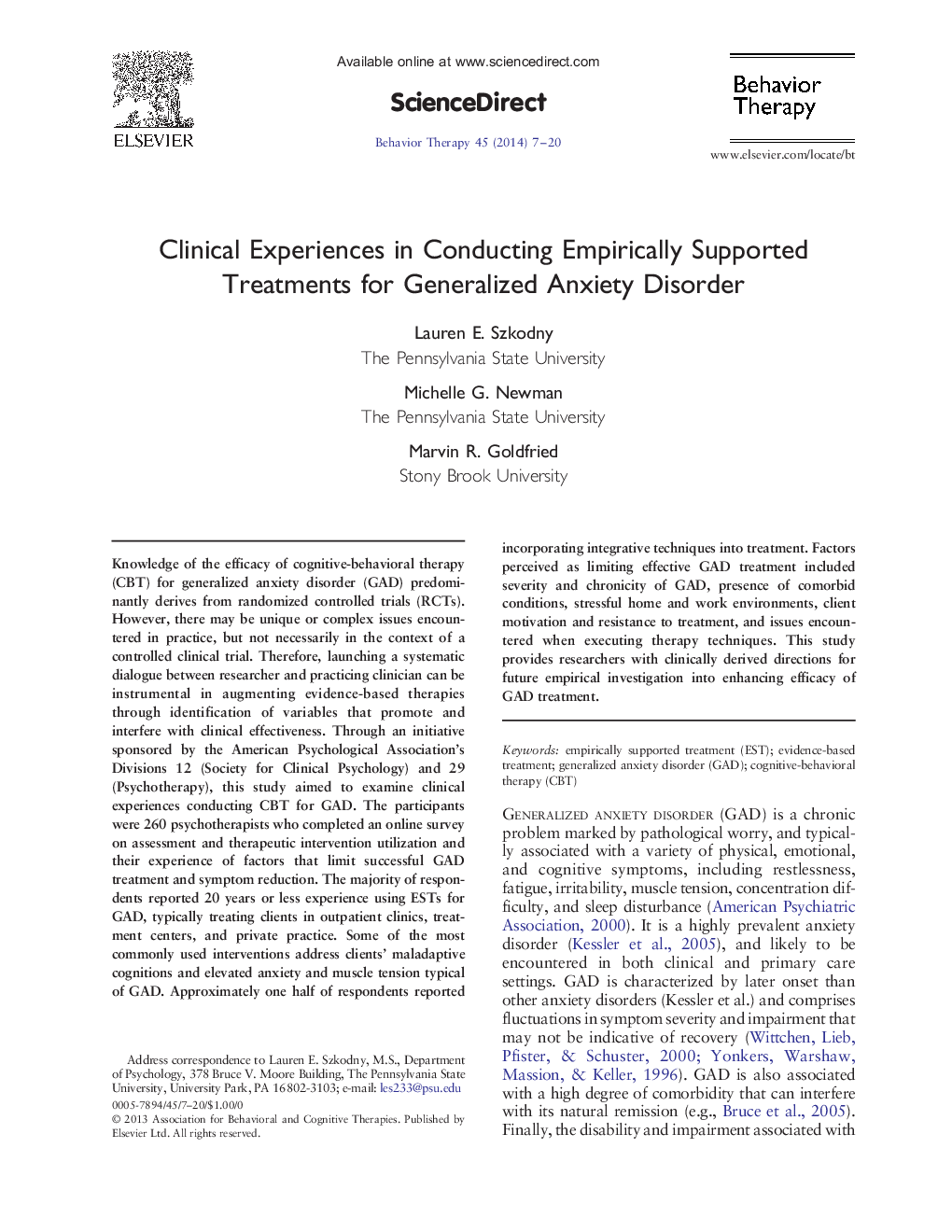| کد مقاله | کد نشریه | سال انتشار | مقاله انگلیسی | نسخه تمام متن |
|---|---|---|---|---|
| 901238 | 915854 | 2014 | 14 صفحه PDF | دانلود رایگان |
• CBT is a well-validated and extensively used treatment for GAD in clinical settings
• Report on practicing clinicians’ experience conducting ESTs for GAD
• Therapists varied in training, psychotherapy experience, and clinical setting
• Therapists use a variety of techniques in the assessment and treatment of GAD
• GAD, client, and therapy factors can interfere with treatment efficacy
Knowledge of the efficacy of cognitive-behavioral therapy (CBT) for generalized anxiety disorder (GAD) predominantly derives from randomized controlled trials (RCTs). However, there may be unique or complex issues encountered in practice, but not necessarily in the context of a controlled clinical trial. Therefore, launching a systematic dialogue between researcher and practicing clinician can be instrumental in augmenting evidence-based therapies through identification of variables that promote and interfere with clinical effectiveness. Through an initiative sponsored by the American Psychological Association’s Divisions 12 (Society for Clinical Psychology) and 29 (Psychotherapy), this study aimed to examine clinical experiences conducting CBT for GAD. The participants were 260 psychotherapists who completed an online survey on assessment and therapeutic intervention utilization and their experience of factors that limit successful GAD treatment and symptom reduction. The majority of respondents reported 20 years or less experience using ESTs for GAD, typically treating clients in outpatient clinics, treatment centers, and private practice. Some of the most commonly used interventions address clients’ maladaptive cognitions and elevated anxiety and muscle tension typical of GAD. Approximately one half of respondents reported incorporating integrative techniques into treatment. Factors perceived as limiting effective GAD treatment included severity and chronicity of GAD, presence of comorbid conditions, stressful home and work environments, client motivation and resistance to treatment, and issues encountered when executing therapy techniques. This study provides researchers with clinically derived directions for future empirical investigation into enhancing efficacy of GAD treatment.
Journal: Behavior Therapy - Volume 45, Issue 1, January 2014, Pages 7–20
